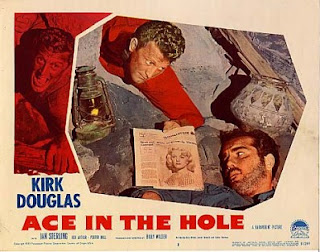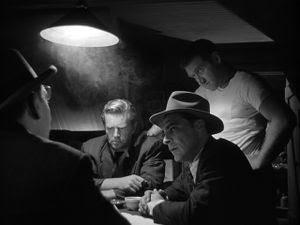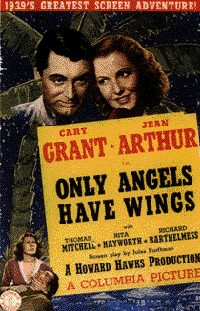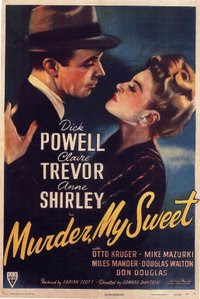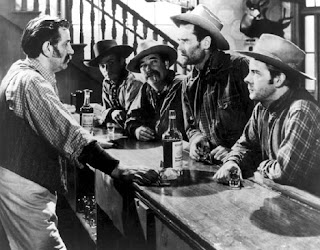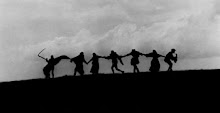Written by: David Sherwin, John Howlett
Starring: Malcolm McDowell, David Wood, Richard Warwick
Color/Black & White, 112 minutes
Rated R (originally X)

Grade: A-
"Wisdom is the principal thing: therefore get wisdom: and with all thy getting, get understanding."
-Proverbs 4:7
So opens this bizarre film, and a fitting opening it is. For the past two days I've been letting if... stew around in my mind. I didn't want to write about it yet, I couldn't get my head around it. I didn't want to lay down a judgment too early, because my reaction to the film ran the gamut from being tickled pink, to being shocked outright, to being forced to scratch my head in bewilderment. Did that just happen? Is it just a dream maybe? I thought that guy was dead, what's he doing talking in a bureau drawer? These were just some of the questions running through my mind while viewing this film. I can only assume that I'm not the only one who has had these thoughts during if..., it is nothing if not difficult, it is anything but ordinary, it is simply unforgettable.
As the film begins, we see students beginning a new term at a typical British public school (that's the equivalent of a private school in America). From the first frames, we understand director Lindsay Anderson's hatred for the school system (he shot on location at his alma mater). There is a hierarchy at work here, the prefects (or "whips") force the first years (known as "scum") to do their bidding. Not five minutes into the film, we witness a whip imposing his authority by telling a scum to "warm up a lavatory seat for me, I'll be ready in five minutes." The scum walk reluctantly to "the sweat room," a place filled with desks where the students keep the bulk of their personal belongings, including the magazine cut outs that litter the walls. The foreshadowing comes alive here, as we see Alberto Korda's infamous portrait of Che Guevara. As the audience is beginning to get the gist of things,a mysterious figure enters the building, dressed head to toe in black, his face covered with a scarf. The students know him instantly, "Hallo, Mick!" we hear in the halls. The mysterious Mick gets rid of his luggage and heads to a room. He peers into a mirror, slowly unraveling the scarf. We see a young man's reflection, a hauntingly youthful face that is blemished with a neatly trimmed mustache. He stares at himself for a moment, his wild eyes flaring, and then grabs a razor to erase his rebellion for the time being. This unforgettable face, of course, belongs to Malcolm McDowell, and it is here, that the film begins to center around his character. Mick Travis is the ultimate rebel, the quintessential hardass. He's James Dean to the fucking extreme. He's apathetic, amoral, very intelligent, and in possession of a violent mind. He spouts such notable quotes as; "When do we live, that's what I want to know," and "One man can change the world with a bullet in the right place." He steals a motorcycle, bangs a waitress in a roadside diner, and pushes the whips too far. It's not long until Mick and his two flunkies (droogs?) are beaten, one by one, with a cane. The flunkies get off easy, they're hit only four times, it's Mick that the prefects go to town on, laying the cane across his backside at least eight times, if not more (to be honest, I lost count). Mick takes it in stride, letting his anarchic feelings boil to the surface, until he finds a stash of machine guns and grenades in an attic. The next day, while students, teachers, and family members are attending the graduation service, Mick leads his cronies to the rooftops, waiting to shower the crowd with an explosion of fire and blood.
Seen today, in the light of the massacres at Columbine and Virginia Tech, if... has become sadly prophetic and almost unbearably relevant. In 1968, however, Anderson presented the film as a precautionary tale, hence the title. Obviously inspired by Jean Vigo's Zero for Conduct, Anderson keeps us on our toes by constantly shifting gears. Scenes fluctuate from color to black and white (apparently due to budgetary restraints), and weird things seem to be happening all the time. While some scenes can border on the mundane, others will shift easily between hilarity and horror. A teacher smacks a student hard in the back of his head, and then moves two desks down the aisle to slide his hand down the shirt of another student to grab his nipple. Students have their genitals examined by a nurse who just stares. Prefects discuss a certain scum because he's blond and has a pretty face, or more bluntly "their type." One of Mick's friends performs gymnastics while a scum stares with erotic fascination. Mick fires a dart gun at pictures of lions, naked women and celebrities, and while getting up to retrieve the darts, the camera, in medium shot, lingers on a photo of Lenin placed directly above Mick's headboard. We can never know for sure if certain scenes are real, but we do know that it's possible, and that in itself is frightening enough.
Through all these surreal trappings, McDowell guides the audience. From the moment he appears on screen, he fascinates us. This was his first film, and had he done no others, we would still remember him today. He is perfection in this role, 24 playing 16 or so, and he breathes for this character. He may not be a good guy, but the audience identifies with him, and as much as I hate to say it, cheers for him as well. It is one of the most compelling performances that I've ever seen, and it should come as no surprise that it was this role that brought him to Kubrick's attention. There are undeniable similarities between Mick Travis and Alex de Large. Both are non-conformists, both are violent, both are sexually aggressive, and both share a love for music. It wouldn't be presumptuous to say that if...'s screenwriters, David Sherwin and John Howlett, were very aware of Burgess and borrowed elements of his work, but if... is a more mysterious work. It gets under your skin, screws up your head, and never gives you the easy way out.
Lindsay Anderson was one of the leaders of the British New Wave, and many consider this film to be one of the most controversial, and greatest, films ever made in Britain. I agree with that statement, and I'll add that this film is much more accomplished and refined than the more revolutionary films that came out of America around the same time. We got Dennis Hopper, Bob Rafelson, and Monte Hellman, and, to be honest, after seeing this, I would trade the three of them for one Lindsay Anderson. His film is mature, challenging, and demanding. It doesn't rely on the more trippy existentialism that America was reveling in at the time. On top of all that, this film is positively loaded with talent. Miroslav Ondricek was responsible for the brilliant cinematography here, and he would go on to shoot Forman's Amadeus, among others. Future director Stephen Frears (The Queen) was Anderson's assistant director, while the great Chris Menges, who would photograph The Killing Fields, lends a hand as one of the camera operators. The talent was real, and many of them would return for two very loose sequels: O Lucky Man! and Britannia Hospital.
This picture may be too British for many American's to get the full impact of it, but it's influence has carried through the ages. Do you notice the similarity between the name of Mick Travis and a certain protagonist in a Paul Schrader/Martin Scorsese collaboration that would come a few years down the line? Some parts may seem a bit antiquated to us nowadays, but by the third act, that all goes away as the film takes on more resonance. Anderson has his cake and eats it too; he's able to stick it to both the education system and the students. This is a dark, uncompromising picture that puts your mind to work, and sets your temper on fire. In other words, it is essential viewing.
